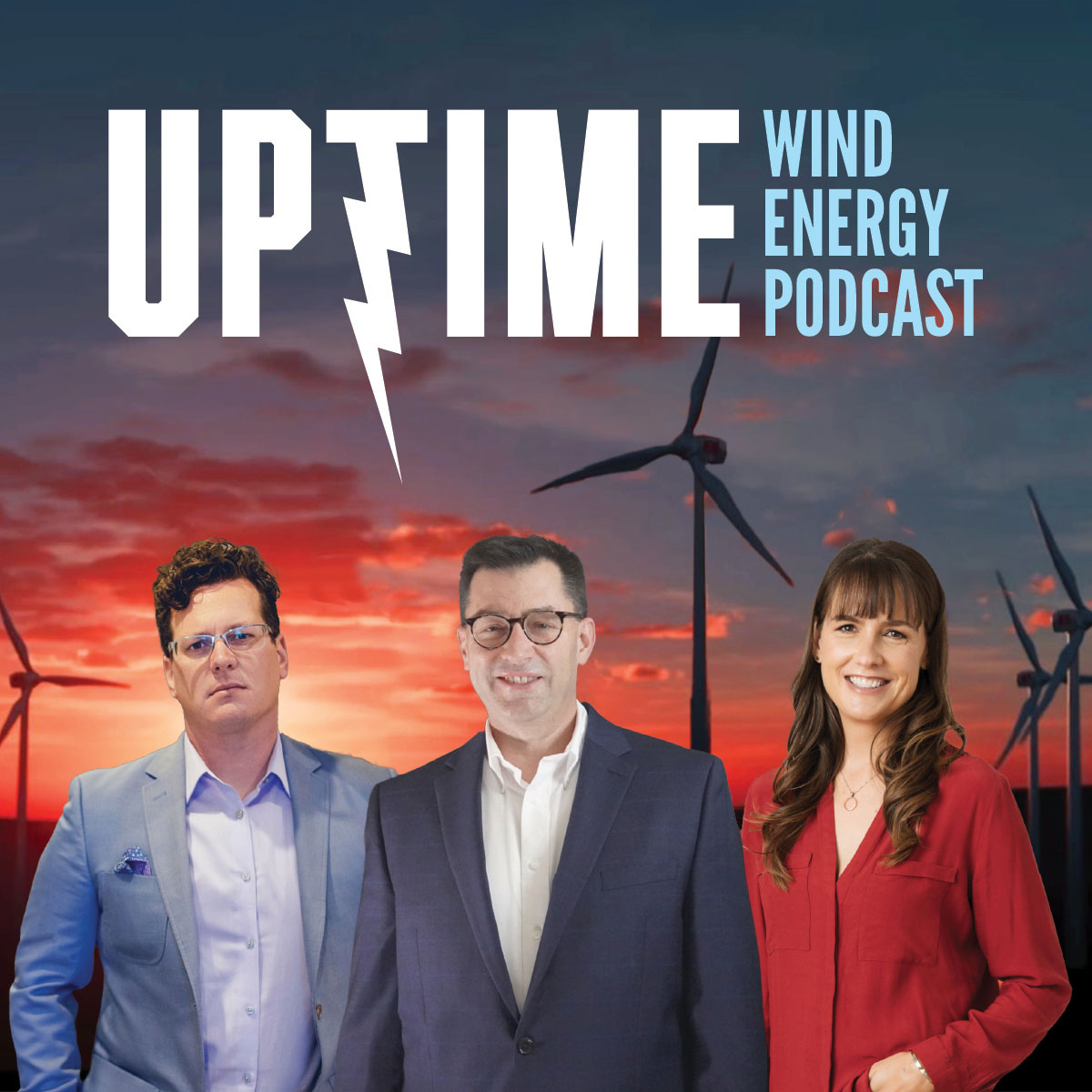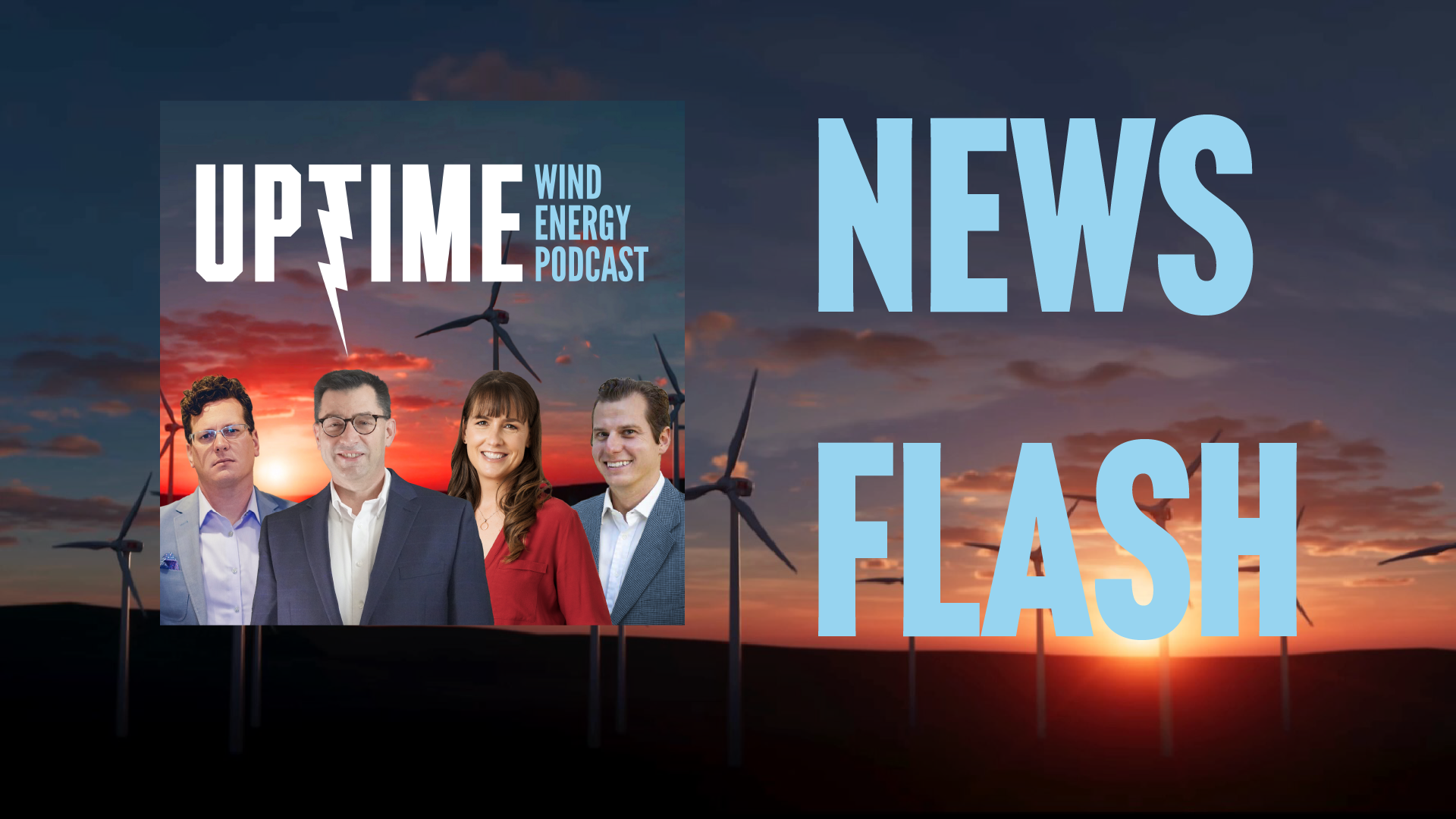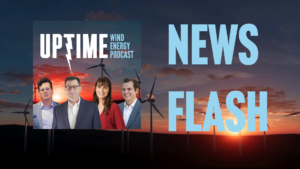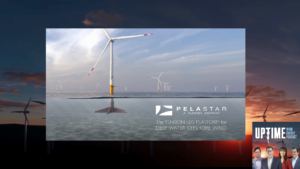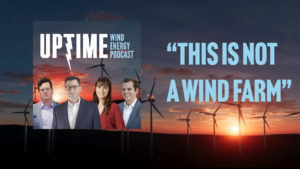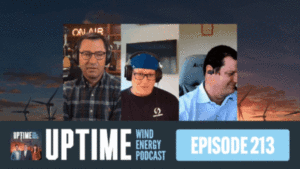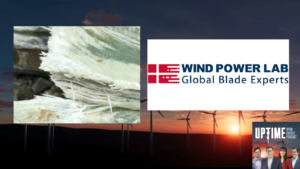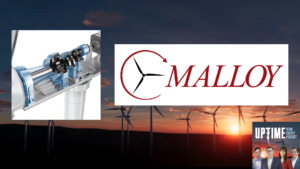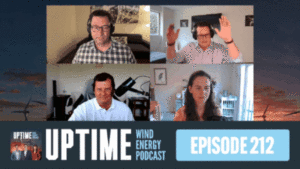Podcast: Play in new window | Download
Energy traders in Europe are profiting from electricity price swings caused by fluctuating renewable energy generation. Equinor and BP are swapping their offshore wind assets to maximize earnings growth. RWE onshore wind and solar increased earnings by 50% in 2023. Spanish renewable energy company Ecoener is entering the Greek market with a 350MW, €300 million investment in wind and solar projects.
Sign up now for Uptime Tech News, our weekly email update on all things wind technology. This episode is sponsored by Weather Guard Lightning Tech. Learn more about Weather Guard’s StrikeTape Wind Turbine LPS retrofit. Follow the show on Facebook, YouTube, Twitter, Linkedin and visit Weather Guard on the web. And subscribe to Rosemary Barnes’ YouTube channel here. Have a question we can answer on the show? Email us!
Pardalote Consulting – https://www.pardaloteconsulting.com
Weather Guard Lightning Tech – www.weatherguardwind.com
Intelstor – https://www.intelstor.com
Allen Hall: I’m Allen Hall, president of Weather Guard Lighting Tech. And I’m here with the founder and CEO of IntelStor, Phil Totaro. And this is your News Flash. News Flash is brought to you by our friends at IntelStor. If you need actionable information about renewable projects or technologies, check out IntelStor at intelstor.com.
A new breed of traders is upending Europe’s energy markets, making huge profits from the region’s transition to renewable energy. In a Bloomberg article, they go on to note that anonymous firms in Denmark are using computer algorithms, weather data, and meteorological know how to trade electricity contracts.
So recently, when fog set in over Eastern Europe, reducing the solar power generation, the traders, computers snapped up some contracts, betting correctly that the short term Electricity prices would spike in Hungary, and they made millions of dollars from just a few minutes of price swings until the fog lifted.
Now, Phil, this is really interesting because they’re up in Aalborg and Aarhus, Denmark, in their offices, with a bunch of computers, evidently, and trading on the electricity market, so it has wide ramifications in terms of, Money exchange and what the average citizen is going to pay for electricity if you have traders with that sort of technology attacking the market.
And this is not very different than what Enron was doing right back in California days.
Philip Totaro: Sort of, but it’s, I would actually say it’s more equivalent to what happening with energy traders in, that year cut market in the United States or, other places in the world where they have a pretty well established,
wholesale market, this is I’d classify it as a new breed only from the perspective that again, you already have some of the same companies like Dunce Commodities or RWE or Centrica already have energy trading houses,and it’s how they balance their own generation and power offtake.
but a lot of these companies are coming in, like you’re saying, and they’re just using, weather prediction and, algorithms and things like that to, to try and, work the market as much as they can. I don’t know, it’s interesting, because at the end of the day, it’s capitalism at its best, but it is probably going to end up being bad for consumers, both, residential customers and,corporate power off takers because, most of the time while you can lock in a fixed price contract, the overwhelming majority of projects throughout Europe in general are not necessarily on a fixed price power off take contract for especially for renewables, wind, solar, and even battery storage.
it’s gonna be interesting if the EU decides to start regulating, even Denmark has even suggested that they might try to clamp down a little bit on this, and,the traders weren’t that happy about, saying, hey, you’re gonna, you’re gonna take all this,food off our table, but they, I think it was 20, Yeah.
Yeah. In 2022, they made something like 5 billion in revenue, collectively, these energy traders. So I think they’re doing okay.
Allen Hall: Over in the East Coast of the United States, Equinor and BP are going solo in the U. S. offshore wind market after deciding to terminate their 50 50 joint venture.
The former partners have agreed to swap assets, related to two major lease areas off New York and Massachusetts. Equinor will take full control of Empire Wind Projects. Near Long Island, and while BP assumes ownership of Beacon Wind Developments, Equinor will also acquire BP’s stake in a key New York wind terminal.
this has implications, Phil. Financial implications as these two split up. There’s a lot of losses that are going to be booked.
Philip Totaro: There are, but in the long run, this may end up working out, because I think the, Normally the reason why companies get together on a project in the first place is to split the risk and cost reduce.
from that perspective, I think the impetus for this is wanting to go their own way on each of these project phases offers them the opportunity to individually bid. a certain amount of capacity back into the New York, auctions, as well as find alternative project partners moving forward, which they were going to probably, presumably do anyway.
it’s, if you’ve seen what a lot of companies have done throughout Europe, the UK and Germany, Holland, Belgium. A lot of older projects have now brought in a new investor into that project with either a 25 to upwards of 50 percent stake. So it’s probable that, once the project got, into final investment decision and started getting built, that they were going to probably announce some type of partnership to, to, come in as an investor to take some of this,some of this ownership stake off their hands.
but I think, again, this probably goes back to wanting to individually bid, each project phase with the New York auctions, which, based on what we’re seeing in terms of price indications, they’re going to be up from 120 a megawatt hour, which were the PPAs they pulled out of to Somewhere in the range of about 170 dollars per megawatt hour is what they want to be able to bid.
Allen Hall: Germany energy giant rwe saw strong growth in its renewable business drive up overall financial results in 2023.
The company’s onshore wind and solar division increased earnings by over to downfill 50 percent to 1. 25 billion euros. That’s a lot. A key driver was RDB is 6. 8 billion acquisition of Con Edison’s clean energy assets in the U S expanding. It’s a American solar and wind portfolio to eight gigawatts. new projects commissioned also contributed to the growth.
Additionally, RDB is trading unit, which handles energy procurement and financial services, boosted earnings by over 35 percent to 1. 58 billion euros. Man, Phil RDB is on a streak.
Philip Totaro: And like we just talked about, the contribution that the energy trading business made is probably not really surprising when you get that sophisticated.
because keep in mind that RWE has the experience with conventional power generation, energy and electricity trading over in Europe. they’ve now established that capability in the U. S. as well. and,they’re seeing,pretty substantial, returns for that. But, operationally, what’s interesting about them is that they vary.
they’ve been very measured, I guess you could say, in the approach that they’ve taken. They haven’t gone whole hog into,potentially risky markets like the U. S. offshore wind segment, they’re, whatever their involvement is with U. S. offshore wind, they’re, California in particular, they’re doing it at a fairly measured pace.
and the same can be said for the rest of the world where they operate, and the markets that they’re even looking into. they have been doing very well and it’s been mostly as a result of them getting back to fundamentals and making sure that, inflationary pressures were baked into their financial models.
and I think that’s had the biggest impact for them.
Allen Hall: Spanish renewable energy company Ecoener is entering the Greek market with a 300 million euro investment in wind and solar projects. Ecoener’s Greek subsidiary has obtained permits to develop 350 megawatts across 10 facilities. The first projects moving forward are a 42 megawatt wind farm and a 50 megawatt solar park.
With construction starting in late 2025 for grid connection or early 2027, the additional eight solar plants totaling 272 megawatts have permits and can begin building in the first half of 2026. wow, the Spanish renewable company entering Greece, that’s interesting.
Philip Totaro: Maybe also from the perspective that besides the Iberian Peninsula, where of course they have, some asset ownership, they do have offices in Poland and Romania where, they do have some, at least partial stakes in some projects there.
Greece is an interesting market, because while it’s been a bit challenged, in terms of getting environmental and other permits to build projects, the market seems to be opening up a little more, and they obviously think that, with this 300 million euro investment, they’re planning on building about 350 megawatts, worth of projects,
that’s a pretty, good amount to, to get in, although it, presumably they’re going to get some project partners to, to fill in some of the rest of that CapEx gap. But, but yeah, that’s, it’s a good move seeing, a company that is regionally focused to expand that, expand that scope.
That, that’s always a good thing for the industry.

